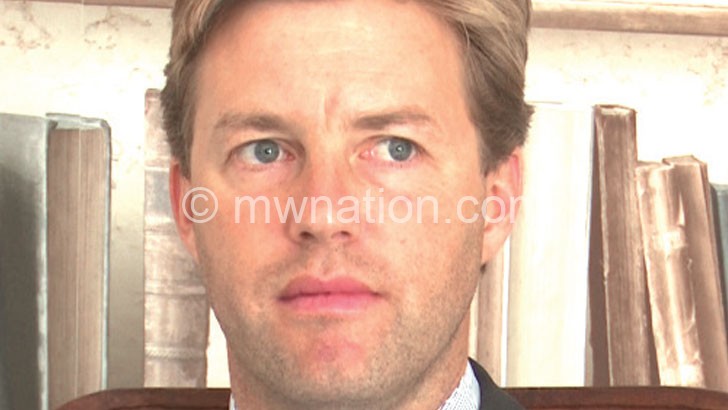Fiscal space too squeezed—World Bank
The World Bank says Malawi has no fiscal space to respond and recover from external shocks such as the Covid-19 pandemic, observing that the country over-relies on costly domestic debt.
Malawi ’s largest multilateral lender for the past 10 years has said the country’s debt is too costly while external financing also remains “too uncertain and too little to support recovery”.
The bank’s country manager for Malawi Hugh Riddell said this yesterday at the 2020 Economics Association of Malawi (Ecama) Annual Lakeshore Conference in Mangochi being held under the theme Going Beyond Macroeconomic Stabilisation: The Need for Building Resilience to External Shocks.

budget targets
He said: “Currently, Malawi lacks the fiscal space to respond or to recover and relies too heavily on costly domestic commercial debt, creating new vulnerabilities. Restoring a fiscal anchor is, therefore, urgent and will require credible budget targets.”
The K2. 2 trillion 2020/21 National Budget, the first substantive budget for the Tonse Alliance administration which was ushered into government on June 23 after the court-sanctioned fresh presidential election, has a fiscal deficit of K755 billion, the largest deficit in the country’s history in nominal values.
With such a yawning deficit, Finance Minister Felix Mlusu expects to finance such a gap by foreign borrowing amounting to K224.8 billion with a larger chunk of K530.1 billion expected to come from domestic financing, which economic analysts always fear its crowding out effect of the private sector as well as pushing up interest rates on the market.
The K530.1 billion domestic borrowing is equivalent to 7.4 percent of nominal gross domestic product (GDP) currently pegged at K8.1 trillion.
Therefore, with domestic debt currently K2.4 trillion or 57.2 percent of the country’s total public debt, representing 33 percent of GDP, Treasury has chosen a risky pathway, analysts fear.
On the one hand, domestic revenues have also drastically shrunk as Malawi Revenue Authority (MRA) is struggling to meet its monthly targets since the onset of Covid-19 pandemic in April this year.
Riddell said a strong macro fiscal anchor will also entail hard choices to rein in expenditure and a stronger accountability for managing expenditures.
The Bretton Woods institution boss in Malawi also spoke on the need for fiscal authorities to re-balance the economy, by among others, developing new growth poles in secondary cities, embracing new trade corridors such as Nacala and Beira and also establishing new urban and regional markets for rural products, which he said is fundamental to commercialising agriculture and creating jobs.
“These objectives are at the centre of the new vision for National Transformation 2063 and the World Bank will be
aligning our new strategy for Malawi towards these ends,” he said.
Riddell said the World Bank is also pleased to see modest changes in the structure of the country’s economy which has seen labour starting to leave on-farm employment in agriculture towards services.
However, he warned that with such a change in the economy’s structure based on experience from other countries it shows that such shifts can be counter-productive by increasing unplanned urbanisation, informal sector employment and low-level productivity.
The official said Malawi will continue to face repeated cycles of drought and flooding, advising authorities to shift from responding to post-crisis to early warning and preparedness systems.
Vice-President Saulosi Chilima, who officially opened the conference that has brought together top economists and others, said he was pleased with the meeting as it places emphasis on going beyond macroeconomic stability to explore strategies to improve the country’s capacity to respond to, and recover from, shocks and return on the path of inclusive and sustainable development.
“This is of particular relevance to our economy, especially in this era of Covid-19,” he said.
The Ecama conference provides a platform for economists to discuss pertinent issues that affect the local economy and suggest remedies to ensure the economy is vibrant





